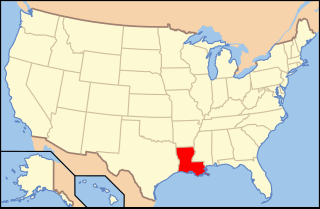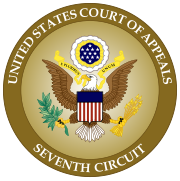Lawrence v. Texas, 539 U.S. 558 (2003), is a landmark decision of the U.S. Supreme Court in which the Court ruled that U.S. state laws criminalizing sodomy between consenting adults are unconstitutional. The Court reaffirmed the concept of a "right to privacy" that earlier cases had found the U.S. Constitution provides, even though it is not explicitly enumerated. It based its ruling on the notions of personal autonomy to define one's own relationships and of American traditions of non-interference with any or all forms of private sexual activities between consenting adults.
Bowers v. Hardwick, 478 U.S. 186 (1986), was a landmark decision of the U.S. Supreme Court that upheld, in a 5–4 ruling, the constitutionality of a Georgia sodomy law criminalizing oral and anal sex in private between consenting adults, in this case with respect to homosexual sodomy, though the law did not differentiate between homosexual and heterosexual sodomy. It was overturned in Lawrence v. Texas (2003), though the statute had already been struck down by the Georgia Supreme Court in 1998.

Harvey v. Horan, 278 F. 3d 370, is a federal court case dealing with felons' rights of access to DNA testing. The Eastern Virginia District Court originally found that felons were entitled access to DNA testing on potentially exculpatory evidence, but this finding was later overturned by the Fourth Circuit Court of Appeals. Nevertheless, the case paved the way for the Innocence Protection Act, which ensures that convicted offenders can try to prove their innocence by requesting DNA testing on evidence in government's possession that was used in their case.
A writ of coram nobis is a legal order allowing a court to correct its original judgment upon discovery of a fundamental error that did not appear in the records of the original judgment's proceedings and that would have prevented the judgment from being pronounced. The term coram nobis is Latin for "before us" and the meaning of its full form, quae coram nobis resident, is "which [things] remain in our presence". The writ of coram nobis originated in the courts of common law in the English legal system during the sixteenth century.
Eisenstadt v. Baird, 405 U.S. 438 (1972), was a landmark decision of the U.S. Supreme Court that established the right of unmarried people to possess contraception on the same basis as married couples.

William Holcombe Pryor Jr. is an American lawyer who has served as the chief judge of the United States Court of Appeals for the Eleventh Circuit since 2020. He was appointed as a United States circuit judge of the court by President George W. Bush in 2004. He is a former commissioner of the United States Sentencing Commission. Previously, he was the attorney general of Alabama, from 1997 to 2004.
Day v. McDonough, 547 U.S. 198 (2006), is a US Supreme Court case involving the one-year statute of limitations for filing habeas corpus petitions that was established by the Antiterrorism and Effective Death Penalty Act of 1996 (AEDPA). In a 5–4 decision, the Court ruled that if the government unintentionally failed to object to the filing of a petition after the AEDPA limitations period has expired, it is not an abuse of discretion for a district court to dismiss sua sponte the petition on that basis.

The Supreme Court of the United States handed down sixteen per curiam opinions during its 2005 term, which lasted from October 3, 2005, until October 1, 2006.
In United States law, habeas corpus is a recourse challenging the reasons or conditions of a person's confinement under color of law. A petition for habeas corpus is filed with a court that has jurisdiction over the custodian, and if granted, a writ is issued directing the custodian to bring the confined person before the court for examination into those reasons or conditions. The Suspension Clause of the United States Constitution specifically included the English common law procedure in Article One, Section 9, clause 2, which demands that "The privilege of the writ of habeas corpus shall not be suspended, unless when in cases of rebellion or invasion the public safety may require it."

Lesbian, gay, bisexual, and transgender (LGBT) people in the U.S. state of Louisiana may face some legal challenges not experienced by non-LGBT residents. Same-sex sexual activity is legal in Louisiana as a result of the US Supreme Court decision in Lawrence v. Texas. Same-sex marriage has been recognized in the state since June 2015 as a result of the Supreme Court's decision in Obergefell v. Hodges.

The Supreme Court of the United States handed down nineteen per curiam opinions during its 2009 term, which began on October 5, 2009, and concluded October 3, 2010.

The Supreme Court of the United States handed down ten per curiam opinions during its 2010 term, which began October 4, 2010 and concluded October 1, 2011.

Lesbian, gay, bisexual, and transgender (LGBT) rights in the U.S. state of Indiana have been shaped by both state and federal law. These evolved from harsh penalties established early in the state's history to the decriminalization of same-sex activity in 1977 and the legalization of same-sex marriage in 2014. Indiana was subject to a April 2017 federal court ruling that discrimination based on sexual orientation is tantamount to discrimination on account of "sex", as defined by the Civil Rights Act of 1964. The ruling establishes sexual orientation as a protected characteristic in the workplace, forbidding unfair discrimination, although Indiana state statutes do not include sexual orientation or gender identity among its categories of discrimination.

Lesbian, gay, bisexual, and transgender (LGBT) people in the U.S. state of Oklahoma face legal challenges not experienced by non-LGBT residents. Same-sex sexual activity is legal in Oklahoma as a result of the U.S. Supreme Court decision in Lawrence v. Texas, although the state legislature has not repealed its sodomy laws. Both same-sex marriage and adoption by same-sex couples have been permitted since October 2014. State statutes do not prohibit discrimination based on sexual orientation or gender identity; however, the U.S. Supreme Court's ruling in Bostock v. Clayton County established that employment discrimination against LGBT people is illegal. This practice may still continue, as Oklahoma is an at-will employment state and it is still legal to fire an employee without requiring the employer to disclose any reason.

Franklin v. State, 257 So. 2d 21, was a case in which the Florida Supreme Court struck down Florida's sodomy law as being "unconstitutional for vagueness and uncertainty in its language, violating constitutional due process to the defendants." The court retained the state's prohibition on sodomy by ruling that anal and oral sex could still be prosecuted under the lesser charge of "unnatural and lascivious" conduct, thus reducing the crime from a felony to a misdemeanor.
Doe v. Commonwealth's Attorney of Richmond, 425 U.S. 901 (1976), is a decision by the Supreme Court of the United States which gave summary affirmation of a lower court ruling which upheld the U.S. state of Virginia's ban on homosexual sodomy.
United States v. Morgan, 346 U.S. 502 (1954), is a landmark decision by the United States Supreme Court which provides the writ of coram nobis as the proper application to request federal post-conviction judicial review for those who have completed the conviction's incarceration in order to challenge the validity of a federal criminal conviction.
Department of Homeland Security v. Thuraissigiam, 591 U.S. ___ (2020), was a United States Supreme Court case involving whether the Illegal Immigration Reform and Immigrant Responsibility Act of 1996, which limits habeas corpus judicial review of the decisions of immigration officers, violates the Suspension Clause of Article One of the U.S. Constitution. In the 7–2 opinion, the Court ruled that the law does not violate the Suspension Clause.
Kimmelman v. Morrison, 477 U.S. 365 (1986), was a decision of the U.S. Supreme Court that clarified the relationship of the right to effective assistance of counsel under the Sixth Amendment to other constitutional rights in criminal procedure. In this case, evidence against the defendant was probably seized illegally, violating the Fourth Amendment, but he lost the chance to argue that point due to his lawyer's ineffectiveness. The prosecution argued that the defendant's attempt to make a Sixth Amendment argument via a habeas corpus petition was really a way to sneak his Fourth Amendment argument in through the back door. The Court unanimously disagreed, and held that the Fourth Amendment issue and the Sixth Amendment issue represented different constitutional values, and had different requirements for prevailing in court, and therefore were to be treated separately by rules of procedure. Therefore, the habeas corpus petition could go forward. In its opinion, the Court also gave guidance on how to apply its decisions in Stone v. Powell and Strickland v. Washington.







